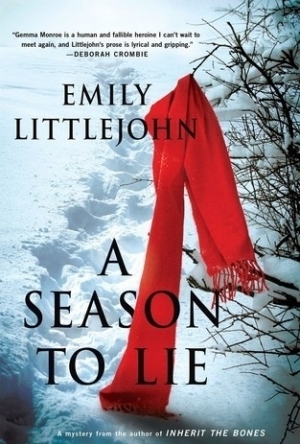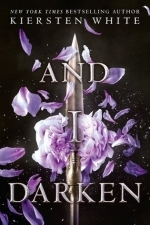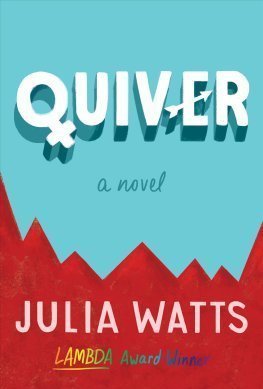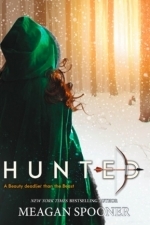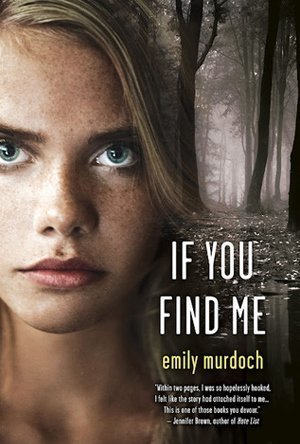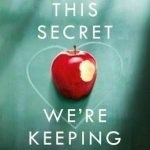Search
Search results

100 Great Muslims of all time around the world
Lifestyle and Education
App
Al-Khawarizmi is a trusted name in Islamic Apps development for years. We have sold thousands of...

Radio y Podcast iVoox
News and Music
App
With iVoox you can listen, share and download podcasts, radio shows and much more for free, whenever...
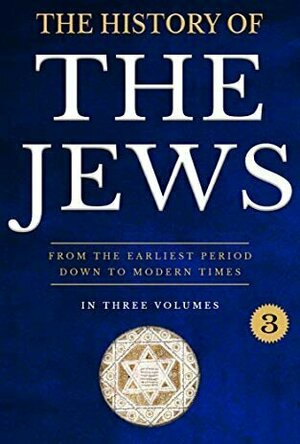
The History of the Jews
Book
The History Of The Jews: From The Earliest Period Down To Modern Times, In Three Volumes. (Vol. 3)...
Kristy H (1252 KP) rated A Season to Lie in Books
Jan 10, 2018
Realistic portrayal of female detective (2 more)
Strong main character
Keeps you guessing
Police officer Gemma Monroe returns from maternity leave and is immediately plunged back into the job when she finds a dead man at the local private academy. He's been left in the snow, stuck to a tree with a knife in his stomach. The man turns out to be a famous author hiding out in plain sight in Gemma's Colorado town. Even worse, that same private school is being plagued by a vicious bully who calls him or herself "Grimm." Reunited with her partner, Finn, Gemma finds herself dealing with the murder case, the bullying incidents, and a strange construction company--made up mainly of ex-convicts--that seems to have made itself at home in her town. So much for easing herself back into the job...
I very much enjoyed Emily Littlejohn's first Gemma Monroe novel, Inherit the Bones, and was really excited to see the second one come out. It's always exciting to see a realistic female detective portrayed in literature. Gemma is much the same in this second foray--practical and levelheaded. She's back to work after the birth of her daughter, Grace, with whom she was pregnant in BONES. The novel does a great job of portraying a working, breastfeeding mom and giving us a realistic look at the struggles a mom faces when juggling work and motherhood. As a mother who went back to work when her own daughters were young and faced a harried schedule, I really appreciated that about this novel.
Thankfully, I did not encounter a dead body on my first day back, just a lot of meetings! Gemma, of course, takes it all in stride, as she cannot help but enjoy the thrill of the hunt. The novel gives us a lot of reflection and thoughts from Gemma. I'd call this one a bit of a slow-burner. I read it while busy and it took me nearly a week. The storyline wasn't one that had me itching to pick it up and see what happens--there's several divergent plot lines and none feel particularly urgent or overly suspenseful.
A pervasive weariness almost overlays the pages--a reflection of the weather (think snow, all the time) and Gemma's general fatigue as she faces returning to work while juggling having a tiny baby at home. That's not to say the book isn't interesting, because it certainly is. Especially when the case starts to intersect with Gemma and Finn's personal lives--which isn't surprising, considering they are small town police officers/detectives. The Grimm storyline is a bit of a bizarre concept and the resolution, while a total surprise to me, was a bit anticlimactic. A few of the plot threads do tie up a little too easily, but the main case befuddled me throughout the entire novel, so kudos to Littlejohn for that. I had some suspicions, but she convinced me to cast them aside, so I'm always pleased when that happens.
What I enjoyed most about this book was Gemma herself. It's probably obvious that I identify with and like her--I enjoy her steadfast character, even though she also has bouts of anxiety and uncertain times. Seeing her as both a mom and working detective was great. This being a second novel, we're gaining enough recurring characters (Gemma, Finn, Gemma's partner/quasi-husband, Brody, Gemma's grandparents, a few other townspeople) that you recognize them and their quirks. Another plotline is left a bit unresolved, leading me to hope that a third Gemma novel is in the works. Even though this wasn't the most exciting of all mysteries, I found it solid and enjoyable, much like its protagonist. I'd certainly read any Gemma Monroe novel I could get my hands on. 3.5+ stars.
I received a copy of this novel from the publisher and Netgalley (thank you!) in return for an unbiased review.
I very much enjoyed Emily Littlejohn's first Gemma Monroe novel, Inherit the Bones, and was really excited to see the second one come out. It's always exciting to see a realistic female detective portrayed in literature. Gemma is much the same in this second foray--practical and levelheaded. She's back to work after the birth of her daughter, Grace, with whom she was pregnant in BONES. The novel does a great job of portraying a working, breastfeeding mom and giving us a realistic look at the struggles a mom faces when juggling work and motherhood. As a mother who went back to work when her own daughters were young and faced a harried schedule, I really appreciated that about this novel.
Thankfully, I did not encounter a dead body on my first day back, just a lot of meetings! Gemma, of course, takes it all in stride, as she cannot help but enjoy the thrill of the hunt. The novel gives us a lot of reflection and thoughts from Gemma. I'd call this one a bit of a slow-burner. I read it while busy and it took me nearly a week. The storyline wasn't one that had me itching to pick it up and see what happens--there's several divergent plot lines and none feel particularly urgent or overly suspenseful.
A pervasive weariness almost overlays the pages--a reflection of the weather (think snow, all the time) and Gemma's general fatigue as she faces returning to work while juggling having a tiny baby at home. That's not to say the book isn't interesting, because it certainly is. Especially when the case starts to intersect with Gemma and Finn's personal lives--which isn't surprising, considering they are small town police officers/detectives. The Grimm storyline is a bit of a bizarre concept and the resolution, while a total surprise to me, was a bit anticlimactic. A few of the plot threads do tie up a little too easily, but the main case befuddled me throughout the entire novel, so kudos to Littlejohn for that. I had some suspicions, but she convinced me to cast them aside, so I'm always pleased when that happens.
What I enjoyed most about this book was Gemma herself. It's probably obvious that I identify with and like her--I enjoy her steadfast character, even though she also has bouts of anxiety and uncertain times. Seeing her as both a mom and working detective was great. This being a second novel, we're gaining enough recurring characters (Gemma, Finn, Gemma's partner/quasi-husband, Brody, Gemma's grandparents, a few other townspeople) that you recognize them and their quirks. Another plotline is left a bit unresolved, leading me to hope that a third Gemma novel is in the works. Even though this wasn't the most exciting of all mysteries, I found it solid and enjoyable, much like its protagonist. I'd certainly read any Gemma Monroe novel I could get my hands on. 3.5+ stars.
I received a copy of this novel from the publisher and Netgalley (thank you!) in return for an unbiased review.
Jamie (131 KP) rated And I Darken (The Conqueror's Saga #1) in Books
Jul 15, 2017
Well developed characters with complex relationships (1 more)
Engaging story
What if Vlad the Impaler was a girl? An engrossing historical dark fantasy
I was surprised to find that the story had two main characters, Lada and her younger brother Radu. The story is told from their alternating points of view from childhood up to early adulthood. The siblings are sent from their homeland as hostages to the sultan to ensure their father’s loyalty. The story follows the siblings through their journey of self discovery as their fates become entangled with Mehmed II, the virtuous son of the sultan with dreams of conquest.
Lada is fierce even from a young age, a vicious child that is often described as being ugly. She is abrasive and domineering with an intense hunger to claim and rule over what she views as hers. She is frustrated by the limitations placed on her for being a woman, craving power and freedom given to her brother for the simple fact that he is a man. Lada wrestles with her femininity, at some times rejecting it entirely and at other times trying to accept herself and her needs as a woman. She idolizes her father and later the janissaries, wanting desperately to be recognized and accepted. Lada seeks to return home to her mother Wallachia, her birthright.
In stark contrast to Lada, he is sensitive and beautiful. As a child he cried easily and like his sister he also desperately sought affection and acceptance from others. Beginning with their father, their nursemaid, Lada, and eventually Mehmed. While Lada seeks power through brute strength Radu finds a means to his ends through manipulation, using his attractiveness to gain the respect and trust of the people around him. Radu finds his home in Islam and the empire under the watchful eye of the father, the Sultan.
The parallels between Lada and Radu are a subversion of the classical gendered stereotypes placed on men and women. The bonds between Lada, Radu, and Mehmed were incredibly complex and toxic for all involved. The book doesn’t shy away at all from the hideous aspects of love and jealousy and gives an honest and intimate portrayal of the characters as they stumble into adulthood.
This book is loosely based on three very real historical figures: Vlad the Impaler, Radu the Fair, and Mehmed II. Despite this, the book is in no way to be considered to be historically factual, as noted by the author. Lada’s gender change aside there is definitely many pieces of history that are changed deliberately to make room not only for a new romance but also for a more neutral portrayal of the character. This is definitely a medieval fantasy and alternate history book which I’m quite frankly fine with and was able to enjoy just the same. The setting and characters were fairly convincing for the time period and appreciated the research and detail that was put into the book to make it at least believable.
I expected a little more war and battle in this book but there was actually next to none. There was much more focus on the political aspects of the story which I think was alright considering the ages of the main characters. I do expect to see more combat in the next book though, so maybe Lada will actually be the brutal warrior princess she was destined to be.
Despite my mild complaints about the historical aspects of this book I thoroughly enjoyed myself reading it. I was initially intimidated by the page count for this book but found myself flying through the pages. And I Darken is masterfully written and really polished compared to a lot of YA literature. Definitely one of my favorites and I am absolutely ecstatic to continue the series.
Lada is fierce even from a young age, a vicious child that is often described as being ugly. She is abrasive and domineering with an intense hunger to claim and rule over what she views as hers. She is frustrated by the limitations placed on her for being a woman, craving power and freedom given to her brother for the simple fact that he is a man. Lada wrestles with her femininity, at some times rejecting it entirely and at other times trying to accept herself and her needs as a woman. She idolizes her father and later the janissaries, wanting desperately to be recognized and accepted. Lada seeks to return home to her mother Wallachia, her birthright.
In stark contrast to Lada, he is sensitive and beautiful. As a child he cried easily and like his sister he also desperately sought affection and acceptance from others. Beginning with their father, their nursemaid, Lada, and eventually Mehmed. While Lada seeks power through brute strength Radu finds a means to his ends through manipulation, using his attractiveness to gain the respect and trust of the people around him. Radu finds his home in Islam and the empire under the watchful eye of the father, the Sultan.
The parallels between Lada and Radu are a subversion of the classical gendered stereotypes placed on men and women. The bonds between Lada, Radu, and Mehmed were incredibly complex and toxic for all involved. The book doesn’t shy away at all from the hideous aspects of love and jealousy and gives an honest and intimate portrayal of the characters as they stumble into adulthood.
This book is loosely based on three very real historical figures: Vlad the Impaler, Radu the Fair, and Mehmed II. Despite this, the book is in no way to be considered to be historically factual, as noted by the author. Lada’s gender change aside there is definitely many pieces of history that are changed deliberately to make room not only for a new romance but also for a more neutral portrayal of the character. This is definitely a medieval fantasy and alternate history book which I’m quite frankly fine with and was able to enjoy just the same. The setting and characters were fairly convincing for the time period and appreciated the research and detail that was put into the book to make it at least believable.
I expected a little more war and battle in this book but there was actually next to none. There was much more focus on the political aspects of the story which I think was alright considering the ages of the main characters. I do expect to see more combat in the next book though, so maybe Lada will actually be the brutal warrior princess she was destined to be.
Despite my mild complaints about the historical aspects of this book I thoroughly enjoyed myself reading it. I was initially intimidated by the page count for this book but found myself flying through the pages. And I Darken is masterfully written and really polished compared to a lot of YA literature. Definitely one of my favorites and I am absolutely ecstatic to continue the series.
RəX Regent (349 KP) rated Downfall (Der Untergang) (2004) in Movies
Feb 19, 2019
The true story of the last days of NAZI Germany, focusing on Hitler and his cohorts as they sought refuge on his Berlin Bunker and is chronicled here with such honesty.
Told in a straight forward manner, we are given a portrait of not only Adolf Hitler himself, played perfectly by Bruno Ganz, who manages to humanize him without ever apologising for his heinous acts, but also those close to him. Shown through the young eyes of his final secretary, Traudl Junge (Alexandra Maria Lara), we are given a picture of what The Third Reich was to those who believed in it as well as what it had become for those who would suffer at it bloody hands.
Directed by Hirschbiegel to put us, the audience in the anterooms with these monsters, we are placed into a complex environment, edgy, atmospheric and most of all, real, as we witness noble acts of patriotism, conscience and pure, despicable horror, none less so that Magda Geobells, with the full consent of her husband, Joseph, first drugging, then murdering their six children as they slept, rather than “let them live in a world without national socialism.”
The only redeeming factors were their eventual suicides and in terms of the film, their first rate performances throughout this harrowing scene. Corinna Harfouch, who portrays Magda manages to portray this evil woman yet convey the emotion which was subdued deep beneath the surface. No small feat to allow such a fleeting glimpse of humanity during such and inhuman act.
But the same must be said Bruno Ganz, who manages to portray Hitler with such humanity; whilst showing us the true nature of his monstrosities, highlighting that the REAL monsters live among us and can seduce us at any time, any where, especially when we are vulnerable.
During one of the film’s early scenes, Hitler and Albert Speer (Heino Ferch), his Armaments Minister, discussing his vision for The Third Reich as he looks over a model of the new Germany which would be built after he won the war, a Germany without department stores, instead focusing on art, literature and culture.
Surely a noble goal, but as we all know, this cultural hub would have been built at an unacceptable cost, mainly with the blood of those who Hitler and his cohorts deemed to be inferior.
This is one of many clever methods used to convey a fair portrait of Hitler and The Third Reich. To demonstrate how bad they were, you first have to show impartiality, pointing out the good in what they do, play devil’s advocate as it were. Because whether we like it or not, evil motives are often built upon decent goals.
But as this film demonstrates, as Hitler shows his destine for anyone, even his own people, who will not give their lives for HIS vision of Germany, his Third Reich was being eaten away by a cancer of his own making, a Germany rotting from the very top.
Downfall is without a doubt one of the best World War 2 films which I have ever seen, delivering a compelling and immersive look behind the scenes of one of the most important defeats in modern history.
But being British and having to follow this with subtitles, which was great as watching this in its native German only adds to the experience, it can be a bit difficult to keep up with every plot machination, as we spend two and half hours reading about troop deployments, tactics and the philosophy of the Third Reich as we are presented with such atmospheric work, but if you can keep up with but the text and visuals, this is one hell of an education for those who do not know and an immersive masterpiece for those who follow WW2 history.
Told in a straight forward manner, we are given a portrait of not only Adolf Hitler himself, played perfectly by Bruno Ganz, who manages to humanize him without ever apologising for his heinous acts, but also those close to him. Shown through the young eyes of his final secretary, Traudl Junge (Alexandra Maria Lara), we are given a picture of what The Third Reich was to those who believed in it as well as what it had become for those who would suffer at it bloody hands.
Directed by Hirschbiegel to put us, the audience in the anterooms with these monsters, we are placed into a complex environment, edgy, atmospheric and most of all, real, as we witness noble acts of patriotism, conscience and pure, despicable horror, none less so that Magda Geobells, with the full consent of her husband, Joseph, first drugging, then murdering their six children as they slept, rather than “let them live in a world without national socialism.”
The only redeeming factors were their eventual suicides and in terms of the film, their first rate performances throughout this harrowing scene. Corinna Harfouch, who portrays Magda manages to portray this evil woman yet convey the emotion which was subdued deep beneath the surface. No small feat to allow such a fleeting glimpse of humanity during such and inhuman act.
But the same must be said Bruno Ganz, who manages to portray Hitler with such humanity; whilst showing us the true nature of his monstrosities, highlighting that the REAL monsters live among us and can seduce us at any time, any where, especially when we are vulnerable.
During one of the film’s early scenes, Hitler and Albert Speer (Heino Ferch), his Armaments Minister, discussing his vision for The Third Reich as he looks over a model of the new Germany which would be built after he won the war, a Germany without department stores, instead focusing on art, literature and culture.
Surely a noble goal, but as we all know, this cultural hub would have been built at an unacceptable cost, mainly with the blood of those who Hitler and his cohorts deemed to be inferior.
This is one of many clever methods used to convey a fair portrait of Hitler and The Third Reich. To demonstrate how bad they were, you first have to show impartiality, pointing out the good in what they do, play devil’s advocate as it were. Because whether we like it or not, evil motives are often built upon decent goals.
But as this film demonstrates, as Hitler shows his destine for anyone, even his own people, who will not give their lives for HIS vision of Germany, his Third Reich was being eaten away by a cancer of his own making, a Germany rotting from the very top.
Downfall is without a doubt one of the best World War 2 films which I have ever seen, delivering a compelling and immersive look behind the scenes of one of the most important defeats in modern history.
But being British and having to follow this with subtitles, which was great as watching this in its native German only adds to the experience, it can be a bit difficult to keep up with every plot machination, as we spend two and half hours reading about troop deployments, tactics and the philosophy of the Third Reich as we are presented with such atmospheric work, but if you can keep up with but the text and visuals, this is one hell of an education for those who do not know and an immersive masterpiece for those who follow WW2 history.
Lovely book that gets you thinking
Liberty "Libby" Hazlett is the oldest six kids (soon to be seven). She is part of an evangelical Christian family who practices the Quiverfull lifestyle--having as many kids as God deems they should. The father is the head of the family and his wife and children (especially the girls) should do everything he says, no matter what. Libby and her siblings are home-schooled and rarely see anyone outside of their family and church. So when a new family moves next door, it's a pretty big deal. Zo and her family are not exactly in the same vein religiously or politically as Libby's family. Still, Libby and Zo become fast friends--a friendship that may be cursed from the start. Spending time around Zo's family is eye-opening for Libby. But no one challenges Libby's father or their religion in her family. What does it mean for Libby that she's questioning her faith? And what will the repercussions be?
"It's all over the Bible--'be fruitful and multiply' and then there's Psalm 127 that says that children are like a warrior's arrows and 'blessed is the man whose quiver is full of them.' Some families like ours call themselves Quiverfull for that reason."
This was a really interesting, eye-opening, and sometimes scary novel. It was very well-written, and I really enjoyed it. A huge thanks to LibraryThing to introducing me to Julia Watts and her work. This novel is told in varying viewpoints between Libby and Zo, highlighting the stark contract between their upbringing and the way the two girls look at the world. It does an excellent job at showing how religion shapes your thought.
For Libby, her religious family is basically her entire life. We see how differently boys and girls are treated in her family, with the girls serving as helpmates in every way. She is not allowed any independent thought and is completely indoctrinated in her family's evangelical religion. Any thoughts she has that differ from her family's way of life make her feel strange and scared--and stepping out of line in any way means punishment. Even worse, she can't see any way out. Even though she doesn't want to, her future is set: getting married and having babies in the name of God.
Libby was so wonderfully written, and my heart ached for her. Watching her confront what she was taught, seeing her yearn for a different life--it really opened my eyes to how hard it must be for so many kids raised in religious homes. It's so easy to be derisive about religious views with which you don't agree, but the book did such an excellent job showing how Libby didn't have a choice: religion was such a part of her life from the moment she was born.
Zo's character was great, too. She didn't always seem as fleshed out to me, but it was refreshing to see a gender fluid character in YA literature. She was very down-to-earth, and it was nice to see her sexuality not be her defining characteristic. I also enjoyed how very feisty she was:
"The fact that Mr. Hazlett justifies his dictatorship through religion makes me think of all the families and communities and countries that have been torn apart because of people who claimed to be acting in the name of God."
This was a lovely book, which even had some surprises. It made me want to cry at times and laugh at others. It's very well-written and so beautiful to read. The subject matter is different, well-worth reading, and wrapped up in a very entertaining and interesting story. It certainly gets you thinking, plus it's very hard not to fall for Libby and Zo, too.
I received a copy of this novel from LibraryThing and Three Room Press in return for an unbiased review - thank you!
"It's all over the Bible--'be fruitful and multiply' and then there's Psalm 127 that says that children are like a warrior's arrows and 'blessed is the man whose quiver is full of them.' Some families like ours call themselves Quiverfull for that reason."
This was a really interesting, eye-opening, and sometimes scary novel. It was very well-written, and I really enjoyed it. A huge thanks to LibraryThing to introducing me to Julia Watts and her work. This novel is told in varying viewpoints between Libby and Zo, highlighting the stark contract between their upbringing and the way the two girls look at the world. It does an excellent job at showing how religion shapes your thought.
For Libby, her religious family is basically her entire life. We see how differently boys and girls are treated in her family, with the girls serving as helpmates in every way. She is not allowed any independent thought and is completely indoctrinated in her family's evangelical religion. Any thoughts she has that differ from her family's way of life make her feel strange and scared--and stepping out of line in any way means punishment. Even worse, she can't see any way out. Even though she doesn't want to, her future is set: getting married and having babies in the name of God.
Libby was so wonderfully written, and my heart ached for her. Watching her confront what she was taught, seeing her yearn for a different life--it really opened my eyes to how hard it must be for so many kids raised in religious homes. It's so easy to be derisive about religious views with which you don't agree, but the book did such an excellent job showing how Libby didn't have a choice: religion was such a part of her life from the moment she was born.
Zo's character was great, too. She didn't always seem as fleshed out to me, but it was refreshing to see a gender fluid character in YA literature. She was very down-to-earth, and it was nice to see her sexuality not be her defining characteristic. I also enjoyed how very feisty she was:
"The fact that Mr. Hazlett justifies his dictatorship through religion makes me think of all the families and communities and countries that have been torn apart because of people who claimed to be acting in the name of God."
This was a lovely book, which even had some surprises. It made me want to cry at times and laugh at others. It's very well-written and so beautiful to read. The subject matter is different, well-worth reading, and wrapped up in a very entertaining and interesting story. It certainly gets you thinking, plus it's very hard not to fall for Libby and Zo, too.
I received a copy of this novel from LibraryThing and Three Room Press in return for an unbiased review - thank you!
This is both a very unique and fairly faithful retelling of the classic Beauty and the Beast fairytale. Hunted takes place in Russia and our main character Yeva (Beauty) is a huntress. She is headstrong, kind, caring, has a bit of a temper and can be vengeful - but overall I quite liked her character.
Like the classic tale, Beauty is the youngest of three sisters and daughter of a merchant. In some versions, she also has three brothers and her sisters are unkind - but that is not the case in this retelling. They live in a nice house until a shipping gamble costs them everything. They are forced to move to their father's old hunting cabin, which is a three-day walk from their current home. Her father used to be a hunter, but his wife believed that it was too dangerous and asked him to stop. Despite that, as a child Beauty was allowed to go hunting with her father and learned to love it. Unfortunately, as she grew her father decided that it was not the way a lady should purport herself and no longer allowed her to hunt.
After the loss of their fortune, Yeva and her family must learn to make due with less. Her father takes up hunting again and goes off to catch game for them to store for the winter. Unfortunately, when he returns he is distraught and swears that the Beast he saw when he was younger is stalking him. When he doesn't return from his second trip, Yeva sets out to find him and this is where the story adopts some significantly different elements from the original tale.
In the original, the father enters a castle and accepts his host's hospitality, but upon leaving takes a single rose for his daughter Beauty and is told he has a choice. He shall either be condemned to death for it or he must stay in the castle. While these are not the events that lead to Yeva's time in the castle, nevertheless she ends up imprisoned there. Over time, she and the Beast grow to know one another - but her treatment isn't as kind overall as the original.
I really enjoyed the tales that Yeva told while she was in captivity because they built the lore of the world and gave us a look into what the characters had grown up listening to. Although Yeva spent most of her time as the castle, I do wish that we were able to get to know the other characters like her sisters a little better. They seem very kind, but relatively one-dimensional. As a result of the Beast's curse, I don't feel like we got to know him as well as we could have. I would have loved to watch him grow and connect with him as Yeva does so that I could feel that </i>yes, they could fall in love.</i> I liked Yeva, but her dog Doe-Eyes was probably my favourite character. The dog was so cheerful and loyal that you couldn't help but love her.
The world that Yeva knows is not one we get to see very often in young adult literature. It is a melding of Russia, with its unique environment and folklore, with a more fantastical world. Yeva tells tales of the Firebird, sees a creature that is half dragon and half woman, and learns to listen to the music of that other world. The world itself reminds me a lot of the Grisha trilogy, although the plots and characters are nothing alike. I would love to experience more of the lore that built this enchanted world in the form of novellas.
I would highly recommend this to young adult/teen readers who enjoy fairytales and retellings, especially ones with a unique take on the tale that includes a lot of culture and lore.
Like the classic tale, Beauty is the youngest of three sisters and daughter of a merchant. In some versions, she also has three brothers and her sisters are unkind - but that is not the case in this retelling. They live in a nice house until a shipping gamble costs them everything. They are forced to move to their father's old hunting cabin, which is a three-day walk from their current home. Her father used to be a hunter, but his wife believed that it was too dangerous and asked him to stop. Despite that, as a child Beauty was allowed to go hunting with her father and learned to love it. Unfortunately, as she grew her father decided that it was not the way a lady should purport herself and no longer allowed her to hunt.
After the loss of their fortune, Yeva and her family must learn to make due with less. Her father takes up hunting again and goes off to catch game for them to store for the winter. Unfortunately, when he returns he is distraught and swears that the Beast he saw when he was younger is stalking him. When he doesn't return from his second trip, Yeva sets out to find him and this is where the story adopts some significantly different elements from the original tale.
In the original, the father enters a castle and accepts his host's hospitality, but upon leaving takes a single rose for his daughter Beauty and is told he has a choice. He shall either be condemned to death for it or he must stay in the castle. While these are not the events that lead to Yeva's time in the castle, nevertheless she ends up imprisoned there. Over time, she and the Beast grow to know one another - but her treatment isn't as kind overall as the original.
I really enjoyed the tales that Yeva told while she was in captivity because they built the lore of the world and gave us a look into what the characters had grown up listening to. Although Yeva spent most of her time as the castle, I do wish that we were able to get to know the other characters like her sisters a little better. They seem very kind, but relatively one-dimensional. As a result of the Beast's curse, I don't feel like we got to know him as well as we could have. I would have loved to watch him grow and connect with him as Yeva does so that I could feel that </i>yes, they could fall in love.</i> I liked Yeva, but her dog Doe-Eyes was probably my favourite character. The dog was so cheerful and loyal that you couldn't help but love her.
The world that Yeva knows is not one we get to see very often in young adult literature. It is a melding of Russia, with its unique environment and folklore, with a more fantastical world. Yeva tells tales of the Firebird, sees a creature that is half dragon and half woman, and learns to listen to the music of that other world. The world itself reminds me a lot of the Grisha trilogy, although the plots and characters are nothing alike. I would love to experience more of the lore that built this enchanted world in the form of novellas.
I would highly recommend this to young adult/teen readers who enjoy fairytales and retellings, especially ones with a unique take on the tale that includes a lot of culture and lore.
Heather Cranmer (2721 KP) rated If You Find Me in Books
Jun 6, 2018
(This review can be found on my blog <a href="http://themisadventuresofatwentysomething.blogspot.com/">The (Mis)Adventures of a Twenty-Something Year Old Girl</a>).
I read about this book from a blog, and I was intrigued. I knew this was one book I had to read. When I found out I had won a copy through a blog competition, I was thrilled! Luckily, I wasn't disappointed with If You Find Me by Emily Murdoch. I absolutely loved the plot twists!!
Carey is a fifteen year old girl who lives in the middle of the woods. Her mother is a meth addict, so she's left Carey alone to fend for herself and to take care of her 6 year old sister Janessa. When Carey and her sister are taken from all they've ever known and thrust into "normal" life, Carey doesn't know if she'll be able to cope. However, the "normal" world will make her question everything she's ever known especially when it comes to her mother.
I just want to say that the title of this book is actually mentioned in the book! Aside from that, the title does suit the book very well. Carey seems lost all throughout the book so the title fits with the theme.
I like the cover for the most part although I would've preferred to see maybe a dirty Carey instead of a normal looking teenage girl. I do enjoy the woods in the background especially since that's where Carey was raised.
As for the world building, I think it was good, but it could've been more believable. The way Carey spoke was a little too polished for what I would imagine a girl who grew up away from civilization to speak. I know that it mentions how Carey taught her and her sister to read and such from books her mother brought home, but still. I also thought Carey started speaking "normally" all too soon. Perhaps that's just me since I've never grown up away from civilization.
The pacing was great in If You find Me. It did start off a bit slow, and I was wondering if I was just in for one big disappointment. I was lucky because the pacing picked up within the next couple of chapters, and I was in for one smooth ride. I couldn't put the book down after that.
The characters were very well developed, and I found myself relating to all of them as best as my experience would let me. I loved Carey and how strong she was after how much she had endured. I thought Janessa was just the sweetest little girl. I could feel how much she loved Carey and how much Carey loved her. Delaney was written as a great mean girl. I found myself wanting to slap her so many times throughout the book!! Ryan was adorable, and I loved how he treated Carey. My favorite character though was Pixie. She was the best friend I wished I had. I absolutely loved her dress sense as well!
As for the dialogue, I loved Carey's internal monologue the most. I loved reading about what she thought and felt about everything. The way the characters interacted with each other was never awkward at all. The whole dialogue ran smoothly. I don't really remember any swearing in this book either.
The only disappointing thing I found was the ending. It left me wanting to know what ever became of Carey after the big reveal. I don't want to go into details due to spoilers, but if you read it, you'll know what I mean.
If You Find Me by Emily Murdoch is an easy and enjoyable read that will leave readers thinking about it long after they've finished reading it. It is a very thought provoking piece of literature.
I'd recommend this book to everyone aged 13+ who wants to read something stimulating!
If You Find Me by Emily Murdoch gets a 4.5 out of 5.
I read about this book from a blog, and I was intrigued. I knew this was one book I had to read. When I found out I had won a copy through a blog competition, I was thrilled! Luckily, I wasn't disappointed with If You Find Me by Emily Murdoch. I absolutely loved the plot twists!!
Carey is a fifteen year old girl who lives in the middle of the woods. Her mother is a meth addict, so she's left Carey alone to fend for herself and to take care of her 6 year old sister Janessa. When Carey and her sister are taken from all they've ever known and thrust into "normal" life, Carey doesn't know if she'll be able to cope. However, the "normal" world will make her question everything she's ever known especially when it comes to her mother.
I just want to say that the title of this book is actually mentioned in the book! Aside from that, the title does suit the book very well. Carey seems lost all throughout the book so the title fits with the theme.
I like the cover for the most part although I would've preferred to see maybe a dirty Carey instead of a normal looking teenage girl. I do enjoy the woods in the background especially since that's where Carey was raised.
As for the world building, I think it was good, but it could've been more believable. The way Carey spoke was a little too polished for what I would imagine a girl who grew up away from civilization to speak. I know that it mentions how Carey taught her and her sister to read and such from books her mother brought home, but still. I also thought Carey started speaking "normally" all too soon. Perhaps that's just me since I've never grown up away from civilization.
The pacing was great in If You find Me. It did start off a bit slow, and I was wondering if I was just in for one big disappointment. I was lucky because the pacing picked up within the next couple of chapters, and I was in for one smooth ride. I couldn't put the book down after that.
The characters were very well developed, and I found myself relating to all of them as best as my experience would let me. I loved Carey and how strong she was after how much she had endured. I thought Janessa was just the sweetest little girl. I could feel how much she loved Carey and how much Carey loved her. Delaney was written as a great mean girl. I found myself wanting to slap her so many times throughout the book!! Ryan was adorable, and I loved how he treated Carey. My favorite character though was Pixie. She was the best friend I wished I had. I absolutely loved her dress sense as well!
As for the dialogue, I loved Carey's internal monologue the most. I loved reading about what she thought and felt about everything. The way the characters interacted with each other was never awkward at all. The whole dialogue ran smoothly. I don't really remember any swearing in this book either.
The only disappointing thing I found was the ending. It left me wanting to know what ever became of Carey after the big reveal. I don't want to go into details due to spoilers, but if you read it, you'll know what I mean.
If You Find Me by Emily Murdoch is an easy and enjoyable read that will leave readers thinking about it long after they've finished reading it. It is a very thought provoking piece of literature.
I'd recommend this book to everyone aged 13+ who wants to read something stimulating!
If You Find Me by Emily Murdoch gets a 4.5 out of 5.
Hazel (1853 KP) rated This Secret We're Keeping in Books
Dec 7, 2018
<i>I received this book for free through Goodreads First Reads.
A pupil and a teacher. Is it ever right to break the rules?</i> This is the dilemma which debut author Rebecca Done basis her novel on. <i>This Secret We’re Keeping</i> is set seventeen years after a maths teacher began an inappropriate relationship with a schoolgirl; but did he really deserve what happened to him, after all he loved her and she loved him?
Jess has never got over her love for the teacher she ran away with when she was fifteen. Although she has got her life together: living in Norfolk, freelance catering business, a rich boyfriend; she cannot help but think back to way Mr. Landley, Matthew, made her feel. Suddenly, after a chance encounter, Matthew is back in her life with a new name, Will, and a girlfriend and daughter. Delighted to see each other again, it is not long before they fall back into their illicit affair, however the potential consequences are almost as bad as the previous time.
<i>This Secret We’re Keeping</i> causes the reader to question strong personal beliefs, primarily whether a teacher-student relationship is as wrong as it sounds. If certain events in this novel were to be made public through the media, the majority would instantly hate Matthew, deem him a paedophile, and be satisfied with his punishment. However on reading the situation from his point of view, initial opinions begin to crumble. It appears he genuinely loved Jess, and she him; there were no abusive occurrences, and it was Jess that instigated the relationship in the first place. Did Matthew truly deserve to go to prison for something that would have been legal in a year’s time?
Matthew/Will’s narrative helps to show that it is virtually impossible to pinpoint a single moment that changes a life forever. At which point did he know that he had stepped over the line from right to wrong? In hindsight it is fairly obvious, but at the time the warning signs are not so clear.
Due to the challenging of preset judgments, <i>This Secret We’re Keeping</i> can often be difficult to read. Whilst on the one hand logic will be screaming, “This is wrong!” Done plays with her readers’ sentimentalities to consider the other side of the argument. As the novel progresses it becomes easier to fall in line with Jess and Matthew/Will’s viewpoints, however a brief interaction towards the end forces readers to temporarily reconsider their forgone conclusion. After all, how much can a first person narrative really be trusted?
Having read the blurb I admit I was a bit wary about reading this book. For one, it falls under the genre of Chick Lit, which I am not all that fond of, but secondly the book’s theme appeared rather controversial. On the whole, <i>This Secret We’re Keeping</i> was much better than I was anticipating, however I began to lose interest towards the end as nothing much had changed throughout the present day chapters, and it was already obvious how the past narrative would pan out. The ending is also frustratingly ambiguous, as we never find out whether either of the key characters gets a “happy ever after.”
If you are someone who enjoys Chick Lit, do not let the themes of the book put you off. <i>This Secret We’re Keeping</i> is essentially a romance story, one that is written remarkably well for a first time author. Rebecca Done will be a name to look out for in the world of contemporary literature.
A pupil and a teacher. Is it ever right to break the rules?</i> This is the dilemma which debut author Rebecca Done basis her novel on. <i>This Secret We’re Keeping</i> is set seventeen years after a maths teacher began an inappropriate relationship with a schoolgirl; but did he really deserve what happened to him, after all he loved her and she loved him?
Jess has never got over her love for the teacher she ran away with when she was fifteen. Although she has got her life together: living in Norfolk, freelance catering business, a rich boyfriend; she cannot help but think back to way Mr. Landley, Matthew, made her feel. Suddenly, after a chance encounter, Matthew is back in her life with a new name, Will, and a girlfriend and daughter. Delighted to see each other again, it is not long before they fall back into their illicit affair, however the potential consequences are almost as bad as the previous time.
<i>This Secret We’re Keeping</i> causes the reader to question strong personal beliefs, primarily whether a teacher-student relationship is as wrong as it sounds. If certain events in this novel were to be made public through the media, the majority would instantly hate Matthew, deem him a paedophile, and be satisfied with his punishment. However on reading the situation from his point of view, initial opinions begin to crumble. It appears he genuinely loved Jess, and she him; there were no abusive occurrences, and it was Jess that instigated the relationship in the first place. Did Matthew truly deserve to go to prison for something that would have been legal in a year’s time?
Matthew/Will’s narrative helps to show that it is virtually impossible to pinpoint a single moment that changes a life forever. At which point did he know that he had stepped over the line from right to wrong? In hindsight it is fairly obvious, but at the time the warning signs are not so clear.
Due to the challenging of preset judgments, <i>This Secret We’re Keeping</i> can often be difficult to read. Whilst on the one hand logic will be screaming, “This is wrong!” Done plays with her readers’ sentimentalities to consider the other side of the argument. As the novel progresses it becomes easier to fall in line with Jess and Matthew/Will’s viewpoints, however a brief interaction towards the end forces readers to temporarily reconsider their forgone conclusion. After all, how much can a first person narrative really be trusted?
Having read the blurb I admit I was a bit wary about reading this book. For one, it falls under the genre of Chick Lit, which I am not all that fond of, but secondly the book’s theme appeared rather controversial. On the whole, <i>This Secret We’re Keeping</i> was much better than I was anticipating, however I began to lose interest towards the end as nothing much had changed throughout the present day chapters, and it was already obvious how the past narrative would pan out. The ending is also frustratingly ambiguous, as we never find out whether either of the key characters gets a “happy ever after.”
If you are someone who enjoys Chick Lit, do not let the themes of the book put you off. <i>This Secret We’re Keeping</i> is essentially a romance story, one that is written remarkably well for a first time author. Rebecca Done will be a name to look out for in the world of contemporary literature.
